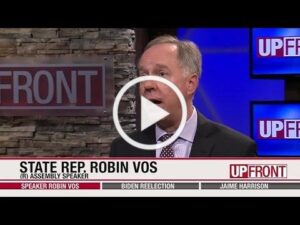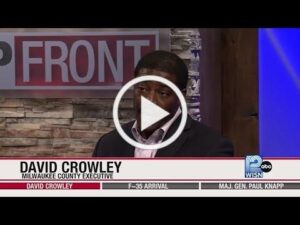
In this update:
- Budget Updates
- Administration Updates
- Legislative Updates
- Election Updates
- A Look at the Week Ahead
- Fundraising Opportunities
Budget Updates
JFC passes omnibus motion, starts from base budget
The GOP-controlled Joint Committee on Finance voted 12-4 along party lines on Tuesday to approve an omnibus budget motion that removed roughly 545 provisions requested by Governor Tony Evers in his executive budget. The JFC also passed a motion to amend the FY 2023-25 budget to only include base funding from the prior year’s budget. That means funding for all personnel, programs that were designed to continue, buildings, infrastructure and debt will at a minimum remain at the same level as approved in the FY 2021-23 budget. As the JFC continues to meet on Tuesdays and Thursdays over the next several weeks, it has the option to add spending for new items or increase spending on existing appropriations. However, the 545 items specifically identified for removal in the omnibus budget motion will not be allowed to be reconsidered, similar to the approach taken by the JFC in 2019 and 2021. Some of the provisions from Gov. Evers’ budget that were identified for removal by the JFC include:
- Expanding Medicaid
- Legalizing recreational marijuana
- 10% state income tax cut for the middle class, as well as decreasing tax breaks for manufacturers and investors
- Increasing per-pupil funding for school-based mental health services
- $290 million for upgrading the Milwaukee Brewers stadium
- Paid family leave program run by the state
- Diversity, equity, and inclusion positions/initiatives
- Providing driver’s licenses to undocumented immigrants
Gov. Evers sent out a tweet shortly after the JFC’s meeting in which he said that GOP lawmakers were removing programs from the budget that enjoyed widespread support from Wisconsinites. “These aren’t fringe ideas, controversial concepts, or Republican or Democratic priorities—they’re about doing the right thing,” said Gov. Evers. “With a historic surplus comes historic responsibility, and today, when we can afford to do more, this vote is foolish and a wasted opportunity.” JFC Democrats also put out a joint press release lamenting their GOP colleagues’ action on the budget. “We’ve heard support for Medicaid expansion, background checks for firearms, marijuana legalization, and paid family leave,” said JFC member Sen. LaTonya Johnson (D-Milwaukee) in the press release. “Despite broad public support, Republicans are shamelessly rejecting these popular initiatives from the budget.”
However, JFC Assembly co-chair Mark Born (R-Beaver Dam) said Republicans would not support the policy-heavy budget proposed by Gov. Evers and his Democrats. “When the solutions apparently from the Democrats are more government, more spending, more welfare, smoke more weed, yeah, our approaches are going to be different,” Rep. Born said. “It’s going to be a budget that’s made for Wisconsin.”
Administration Updates
Evers would “veto in its entirety” shared revenue plan
Governor Evers made his position on the Assembly GOP’s shared revenue plan clear on Thursday when he tweeted a video promising he would “veto in its entirety” the proposal should it be sent to his desk. The tweet was sent out shortly before the Assembly Committee on Local Government was scheduled to hold a public hearing on the bill, AB 245. Although Gov. Evers said he was optimistic a plan would get passed because both he and the Legislature see it as a priority, the governor said the level of funding currently proposed in the bill is inadequate. “The state must step up more than what I’ve seen,” said Gov. Evers. “It’s why I can’t support the Republican plan as is, and frankly, I’ll veto it in its entirety. It is not enough resources.” Gov. Evers called for a “clean bill” that provided more money and less restrictions. “Let’s increase the money going to the locals. And frankly … let’s remove all those restrictions that the legislation was putting on those local folks.”
In response to Gov. Evers’ tweet, Assembly Speaker Robin Vos (R-Rochester) and Senate Majority Leader Devin LeMahieu (R-Oostburg) issued a joint statement critical of the veto threat. “It’s very disappointing to come so close to the finish line only to have the Governor publicly issue veto threats because he wants to spend more money,” Rep. Vos and Sen. LeMahieu said. “The most pressing issue here is the bankruptcy Milwaukee will face if this bill does not pass. This is a disappointing move by Governor Evers. He should reconsider and work with us before the bill is brought to the floor of the Assembly.”
The Assembly GOP’s shared revenue plan is still lacking Senate support and a companion bill has yet to be introduced in the Senate. JFC member Sen. Mary Felzkowski (R-Irma) confirmed in a recent press release the Senate is still working with the Assembly on producing a final proposal that could pass both houses. “Despite the introduction of this bill, the Senate and Assembly still have a number of issues to iron out before this legislation will be ready to cross the finish line,” said Sen. Felzkowski. There has also been some opposition to the plan from at least one local elected official, Waukesha County Executive Paul Farrow, who wrote an op-ed this week calling for lawmakers to revamp the entire shared revenue formula. “The plan gives the City of Milwaukee and Milwaukee County a pathway to solve their financial problems through increased sales taxes but falls woefully short of fixing the fundamental issues with the funding formula that puts [Waukesha County] at a distinct disadvantage here at home,” wrote County Executive Farrow. “If our county’s own state legislators are willing to give Milwaukee what it wants, they should at least fight for what Waukesha County deserves.”
Assembly Committee on Local Government holds hearing on shared revenue bill
On Thursday, the Assembly Committee on Local Government held a hearing on the shared revenue bill being brought forward by Rep. Tony Kurtz (R). The committee took testimony from local government leaders and other stakeholders during the hearing. Most of the local government leaders thanked lawmakers for addressing revenue sharing after years, but also argued that the bill does not go far enough.
Racine Mayor Cory Mason (D) stated at the hearing that he opposes the shared revenue bill because it does not provide enough funding stating, “If we’re only going to come up to the plate every 20 years to deal with this, we’ve really got to get it right.” Kenosha Mayor John Antaramian (D) had similar testimony, but placed emphasis on the $300 million Innovation Fund which would reward local governments that save money by consolidating services. Representative Sue Conley (D-Janesville) spoke against the plan as well, more specifically pointing out the maintenance effort requirement for police and fire departments. She stated, “In my community, we take pride in lowering those things, not maintaining those numbers. We want to reduce crime in our community. This feels a little bit like a quota; like you’re setting a quota around these things.”
JFC votes on budget investments
The Joint Finance Committee voted to invest $7 million for the Medical College of Wisconsin and $2 million to the Child Abuse and Neglect Prevention Board. According to the Legislative Fiscal Bureau, the Medical College of Wisconsin wants to use the money to stabilize and expand its current psychiatry residency program. That includes adding six residents in internal medicine and psychiatry combined over the next three years to 10, and another seven specialty fellowship residencies which will increase to 19 if all fellowships are filled. The committee added a requirement that the Medical College of Wisconsin report back on several things, including the number of residents choosing to practice in underserved areas of the state after graduation, which was approved by all 16 JFC members. The $7 million matches the amount that Governor Evers proposed. Senator Felzkowski (R) noted that Gov. Evers also proposed $500 million for mental health programs in his budget, but said money wasn’t enough to address the issues facing Wisconsin. “You can throw all the money in the world at something, but if you don’t have boots on the ground, people to deliver the services, the money doesn’t mean anything,” the Senator said.
The $2 million for the Child Abuse and Neglect Prevention Board is $6.3 million less than what the Governor proposed. The Board offers grants to family resource centers to support effective parenting and provides money to a program dedicated to the prevention of child abuse and neglect. On the investment, Senator Ballweg (R) stated that this can provide families “generational help in trying to get people to a better place.” She further stated that, “They are the ones that provide the coaching that helps families get over times that are troubled and find resources to make sure they will be able to help those particular families.” Representative Goyke (D) said that as important as the work is, Republicans should’ve invested more. He stated that upfront investment in preventing abuse pays dividends for the state down the road by lowering the reliance on programs that remove children from families where abuse or substance abuse is prevalent.
The Committee also approved a series of IT upgrades for various agencies, including $491,000 in general purpose revenue and another $220,000 in program revenue for the Ethics Commission to replace the existing campaign finance information system website. The one-time money allows the agency to hire a contractor for the updates.
Evers makes three appointments to UW Board of Regents
Governor Tony Evers on Tuesday announced three appointments to the University of Wisconsin Board of Regents. The governor appointed Jim Kreuser and Evan Brenkus and reappointed Regent Joan M. Prince. “I know these folks don’t take lightly the responsibility of their role in supporting the UW System and making sure it continues to be the gem of our state, and I look forward to our work together to do just that,” said Gov. Evers.
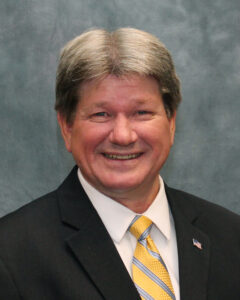 Regent Kreuser served as Kenosha County Executive from 2008 to 2022 and represented Kenosha in the Assembly from 1993 to 2008. He is also a graduate of UW-Parkside, having received his bachelor’s and master’s degrees there. “During my time serving and representing the Kenosha community, I saw firsthand the impact UW-Parkside and our UW System had on our corner of the state as a strong partner in educational opportunities and economic development,” said Regent Kreuser.
Regent Kreuser served as Kenosha County Executive from 2008 to 2022 and represented Kenosha in the Assembly from 1993 to 2008. He is also a graduate of UW-Parkside, having received his bachelor’s and master’s degrees there. “During my time serving and representing the Kenosha community, I saw firsthand the impact UW-Parkside and our UW System had on our corner of the state as a strong partner in educational opportunities and economic development,” said Regent Kreuser.
 Regent Brenkus is a student at UW-Green Bay and also works as a resident mentor on campus. “During my time at UW-Green Bay, I have been working to make our campus and community better, and I look forward to working with my fellow regents and students across the state to do the same for the entire UW System,” said Regent Brenkus.
Regent Brenkus is a student at UW-Green Bay and also works as a resident mentor on campus. “During my time at UW-Green Bay, I have been working to make our campus and community better, and I look forward to working with my fellow regents and students across the state to do the same for the entire UW System,” said Regent Brenkus.
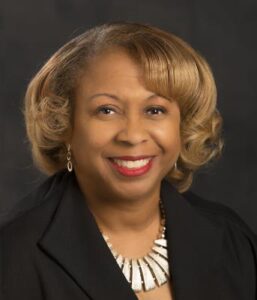 Regent Prince was first appointed by Gov. Evers in February 2023 to fill a vacancy on the board. She served as vice chancellor of global inclusion and engagement and as an associate professor in biomedical sciences at UW-Milwaukee from 2000 to 2021. She also served as a public delegate on the U.N. General Assembly in 2012.
Regent Prince was first appointed by Gov. Evers in February 2023 to fill a vacancy on the board. She served as vice chancellor of global inclusion and engagement and as an associate professor in biomedical sciences at UW-Milwaukee from 2000 to 2021. She also served as a public delegate on the U.N. General Assembly in 2012.
The new appointments mean Gov. Evers’ appointees now hold 13 of the 16 seats on the UW Board of Regents. Only three regents still on the board were appointed by former Gov. Scott Walker.
Evers appoints Czarnezki to Elections Commission
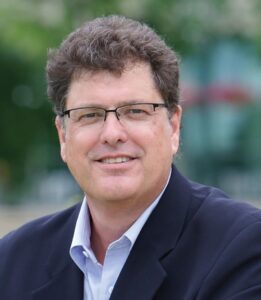 Governor Tony Evers has appointed former Milwaukee County Clerk Joseph Czarnezki to the Wisconsin Elections Commission (WEC). Mr. Czarnezki fills the vacancy created by former Sheboygan County Clerk Julie Glancey, who resigned Monday from the commission. “I’m honored the governor chose me to serve on the Elections Commission and I look forward to serving the people of the state of Wisconsin as best as I can in that capacity,” Mr. Czarnezki told the Milwaukee Journal Sentinel.
Governor Tony Evers has appointed former Milwaukee County Clerk Joseph Czarnezki to the Wisconsin Elections Commission (WEC). Mr. Czarnezki fills the vacancy created by former Sheboygan County Clerk Julie Glancey, who resigned Monday from the commission. “I’m honored the governor chose me to serve on the Elections Commission and I look forward to serving the people of the state of Wisconsin as best as I can in that capacity,” Mr. Czarnezki told the Milwaukee Journal Sentinel.
Mr. Czarnezki served in the Legislature as a Democrat from 1981 to 1993, including two years in the Assembly and nearly ten years in the Senate. He was the Milwaukee County Clerk from 2009 to 2017 and then served on the Milwaukee County Board of Supervisors from 2020 to 2022. In addition to his service as an elected official, Mr. Czarnezki also held several senior-level positions in the administration of Milwaukee Mayor John Norquist.
The WEC consists of six commissioners — three from the Democratic Party and three from the Republican Party. When appointing a new commissioner, the governor must select from a pre-approved list submitted by Democratic and Republican legislative leaders. Mr. Czarnezki will fill one of the Democratic seats. His appointment to the WEC is subject to Senate confirmation.
Legislative Updates
Knodl sworn into Senate
 On Wednesday, longtime Representative Dan Knodl (R) was sworn into the Senate by Waukesha County Circuit Court Judge and former SCOWIS candidate Jennifer Dorow at a private ceremony in Menomonee Falls. Senator Knodl took the seat of former Senator Alberta Darling (R) to represent the 8th Senate District, after winning a special election in April against Democrat Jodi Habush Sinykin. In his resignation letter to Speaker Vos, Knodl said “It has been an honor to serve the people of the 24th District in the State Assembly. I am grateful to my constituents for placing their trust in me to represent them for 13 years. It has also been a privilege to work with you and my colleagues, and in particular to serve as the Assistant Majority Leader and Republican Caucus Chair. I look forward to working together for the benefit of Wisconsin in my new role in the State Senate.”
On Wednesday, longtime Representative Dan Knodl (R) was sworn into the Senate by Waukesha County Circuit Court Judge and former SCOWIS candidate Jennifer Dorow at a private ceremony in Menomonee Falls. Senator Knodl took the seat of former Senator Alberta Darling (R) to represent the 8th Senate District, after winning a special election in April against Democrat Jodi Habush Sinykin. In his resignation letter to Speaker Vos, Knodl said “It has been an honor to serve the people of the 24th District in the State Assembly. I am grateful to my constituents for placing their trust in me to represent them for 13 years. It has also been a privilege to work with you and my colleagues, and in particular to serve as the Assistant Majority Leader and Republican Caucus Chair. I look forward to working together for the benefit of Wisconsin in my new role in the State Senate.”
Senator Knodl’s seat in the Senate gives Republicans a super majority with 22 Republicans and 11 Democrats. The new Senator leaves the 24th Assembly District seat vacant with a 63-35 majority for Republicans. It is up to the discretion of Governor Evers as to when the election to fill the 24th AD seat will be held.
Vos on “UpFront”
Assembly Speaker Robin Vos (R-Rochester) joined WISN’s “UpFront” this week where he discussed a plan from Assembly Republicans to boost funding to local governments, as well as a current lawsuit challenging the state’s abortion ban. Speaker Vos said he thought the plan to boost shared revenue for county and municipal governments would be a “kumbaya moment” for the state. Asked why the Senate had still not gotten behind the Assembly GOP’s plan, Speaker Vos said that maintenance of effort spending requirements for police, fire, and EMS services continued to be a point of discussion between the two houses. Speaker Vos was also questioned about the likelihood of removing a stipulation in the proposal that would require voters in Milwaukee to approve any sales tax increases through referendum. “I guess if there’s a counter-proposal, I’m always willing to take a look at it, but that’s certainly not where we are today,” said Speaker Vos.
Speaker Vos also briefly discussed the state’s 1849 abortion ban, saying lawmakers would likely hold off on taking legislative action until the court had ruled on the matter. Asked if he would be comfortable with a 20-week ban should the court overturn the 1849 law, Speaker Vos demurred. “[20 weeks] is clearly out of bounds as to where the rest of the world is. If you go to France or places in Europe, the normal timeline is 12 to 15 weeks, so that should be the standard at the absolute outside of where we are as a state. I’d prefer it to be less,” said Speaker Vos.
Regarding the upcoming 2024 RNC in Milwaukee, Speaker Vos said he plans to attend the convention and hopes former President Donald Trump is not the nominee. “I’m going to go to the convention,” said Speaker Vos. “It’s something that’s amazing for the state of Wisconsin and for our region. Again, I hope that Donald Trump is a bystander, not the person at the center of the stage, and I’m going to do whatever I can to make that happen.”
Crowley on “UpFront”
Milwaukee County Executive David Crowley was on WISN’s “UpFront” this past week where he discussed shared revenue and increasing the local sales tax. When asked his opinion on the sales tax referendum, Executive Crowley said it would likely be a “tough sell”. “It’s going to take a lot of education, as far as where we are and what we’ve done to help lower many of the costs that we have, but also what we need moving forward,” Crowley said. “We have to put it on the ballot rather quickly. At the end of the day, we want to make sure we can start collecting these revenues as quickly as possible.” He noted that the current legislation would allow them to place the referendum on the ballot fairly quickly, and that he hopes it would make it on by the end of the year. He was then asked if he has any concerns regarding the stipulations that come with the money. He shared, “We all have a little bit of concern. At the end of the day, I would like to have more flexibility when it comes down to the revenues that we’re going to be collecting through the local option sales tax once and if approved.” He finished up the interview by stating, “I think we have to continue working with the governor. We have to see what this bill text looks like, and we’re going to work with all four caucuses at the end of the day.”
Election Updates
Evers announces 24th AD Special Election
On Friday, Governor Evers announced a July 18th special election to fill the 24th Assembly District seat. The seat was left vacant on Wednesday when former 24th AD Representative Dan Knodl was sworn into the Senate. The Governor shared that a primary will take place on June 20, if necessary, and that nomination papers must be filed by 5 p.m. on May 23rd.
A Look at the Week Ahead
- No Joint Finance Committee hearings next week.
- Wednesday 5/10, Strategies’ event with DOT Sec. Craig Thompson.
- Members told to hold May 17th as a potential session day.
Fundraising Opportunities
A list of all upcoming fundraiser opportunities can be found by clicking the button below. For any questions or more information, please do not hesitate to contact your Michael Best Strategies contact.




